2015 Tongji Summer School Brief
同济大学 CAUP 2015 暑期国际设计夏令营简介
Background
Tongji CAUP summer school is an annual event of ten-year history and has become a cherished
tradition. Each summer, CAUP holds a two-week design camp devoted to the exploration of cutting
edge approaches and strategies in the field of architecture, planning and environmental design.
This event includes field trips to facilitate the campers’ comprehension of the urban and
environmental issues of China. Works of the summer school are exhibited and published as a book.
Top works are selected by a jury and awarded with cash prizes.
Theme
This year, the event is themed as “DESIGN AGAINST SMOG: Thermodynamic Methodology for Chinese
Architecture.” The landmark documentary about China's catastrophic air pollution by former CCTV
reporter Chai Jing has been circulated through social media and video-sharing website. The
documentary has sparked unprecedented concerns about the issue of smog. It forces architects,
planners and engineers to come up with multi-disciplinary methods in response to the air pollution.
Undoubtedly China is entering into an era which increasingly suffers environmental crises,
reminiscent of the Los Angeles haze and London fog in the 1950s and 1960s. Ever since
air-conditioning was incorporated into the building system, building interior has been treated as
an environment free from unwanted energy exchange. However, inspired by Rudolf Causius’ Second Law
of Thermodynamics and Ilya Prigogine’s study on dissipative structures and complex systems,
contemporary architectural studies considers buildings to be systems with ambiguous borders. This
thermodynamic underpinning of architecture revolutionized the modernist notion of the city and
called for a revisit to the wisdom of Chinese vernacular settlements, in which the buildings were
able to create an adaptive interior climate. With that in mind, we encourage our campers to learn
from Chinese traditional built environment and the way in which a micro-climate could be created
with specific city layouts, building paradigms, operable spaces and construction approaches.
Equipped with the thermodynamic methods, we are able to critique the form of vast urbanization in
China and rethink the border, ontology, dynamics and organization of modern architectural systems.
Submission
CAUP welcomes applications from students of diverse academic backgrounds. Basically we encourage
those colleges holding a partnership with CAUP to recommend talented candidates. We also welcome
applications from interested institutions all around the world. Good command of the English
language is required to ensure the quality of communication and production. An academic committee
will be appointed to assess and shortlist the applications. We expect to accept 40 students (8 CAUP
students, 16 applicants from other parts of China, and 16 international students).
May 15, 2015 is the deadline to submit all application materials. An acceptable application should
consist of the following components:
1. Cover Letter (recommended)
2. Application Form (Followed after Brief)
3. Curriculum Vitae of the applicant
4. Portfolio (recommended)
We preferred applications to be submitted electronically. All forms, supporting materials and
questions related to application should be directed to 2015tongjisummerschool@tongji.edu.cn
Awards
First Prize 12000RMB
Second Prize 10000RMB
Third Prize 8000RMB
Jury Members
Inaki Abalos Chair of the Department of Architecture at Harvard GSD,
ABALOS+SENTKIEWICZ
Yung Ho Chang Atelier Feichang Jianzhu, former Head of the Department of Architecture
Werner Sobek Professor at the University of Stuttgart (successor to Frei Otto)
Stephen S. Y. Lau Professor at the University of Hong Kong
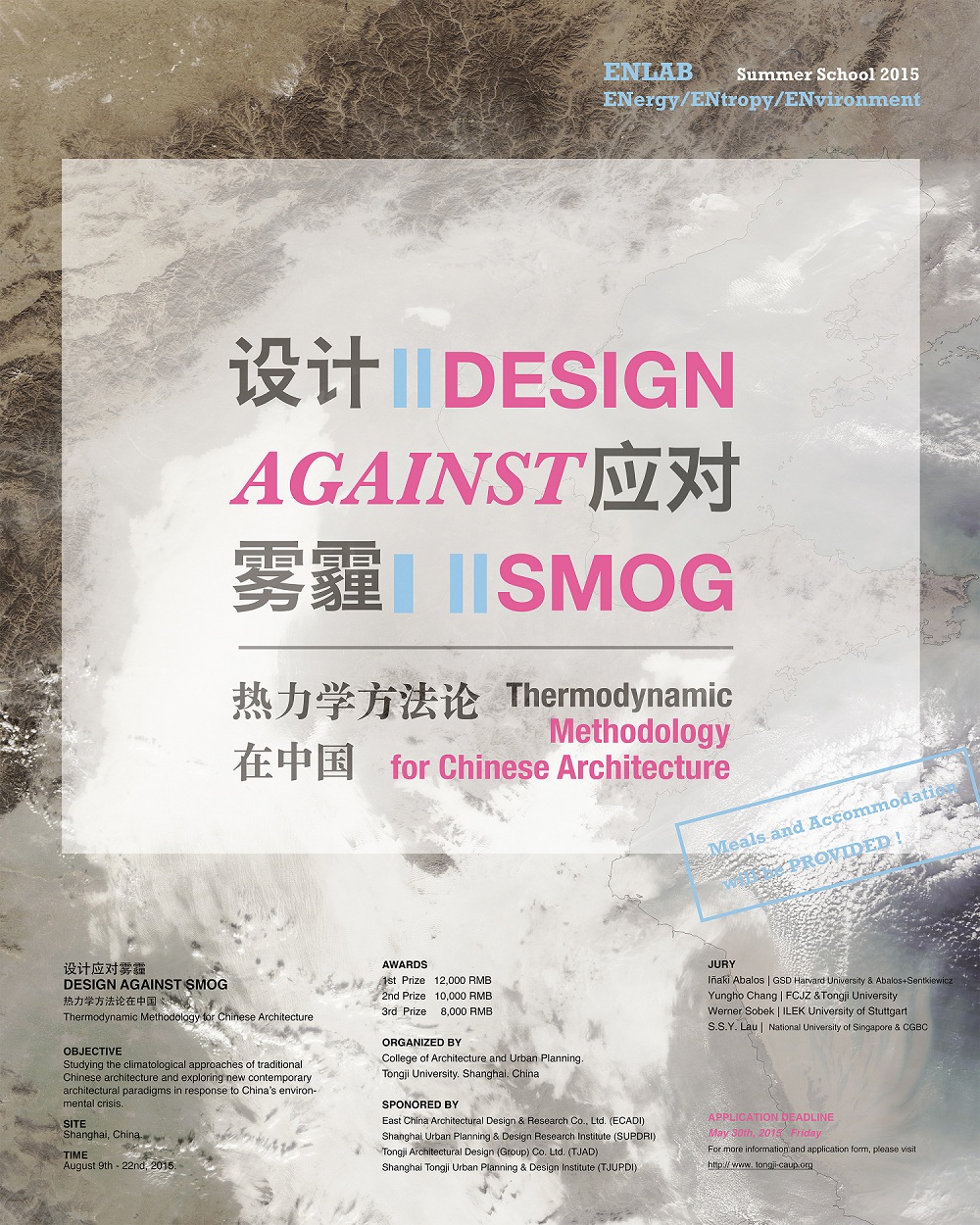
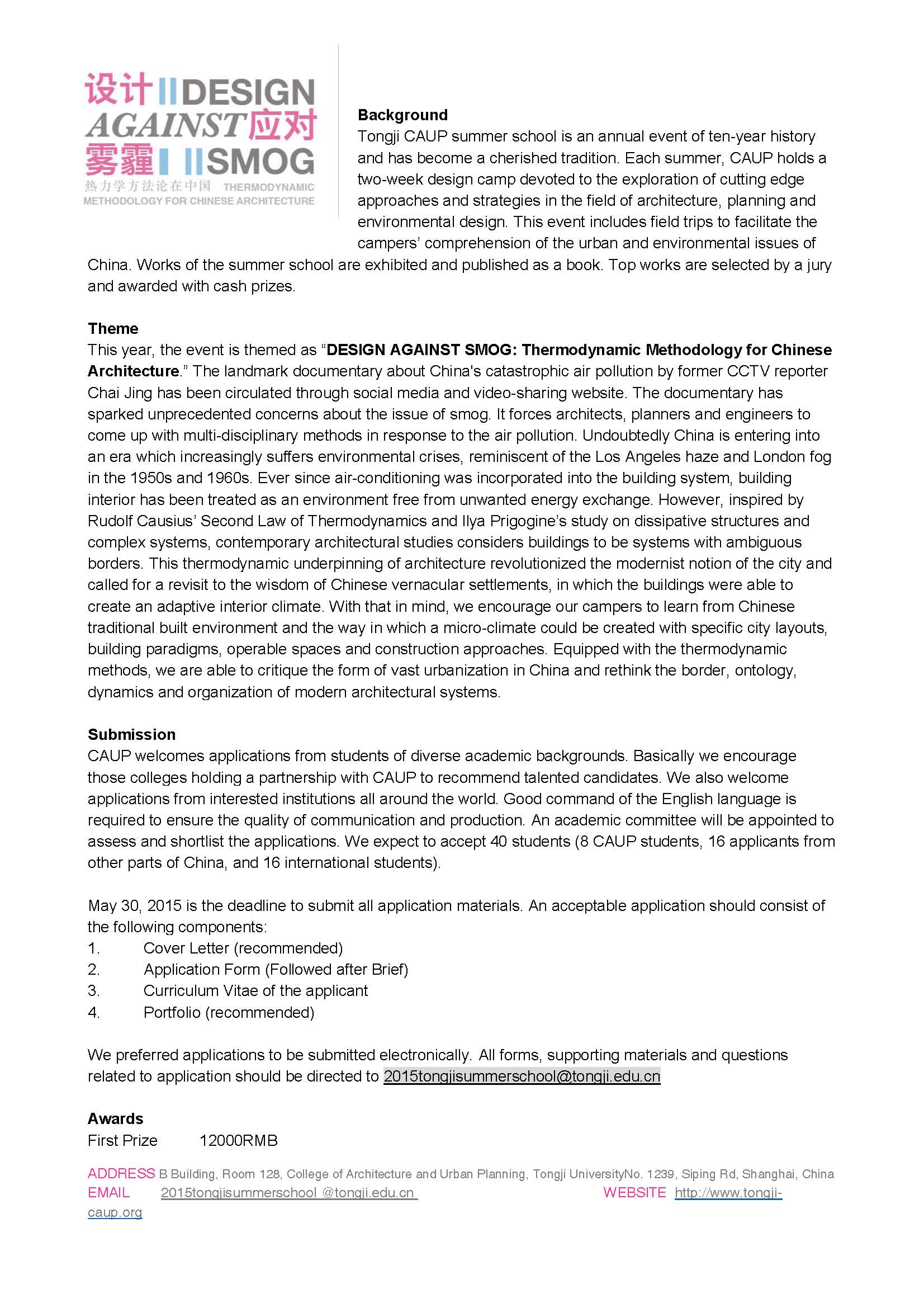
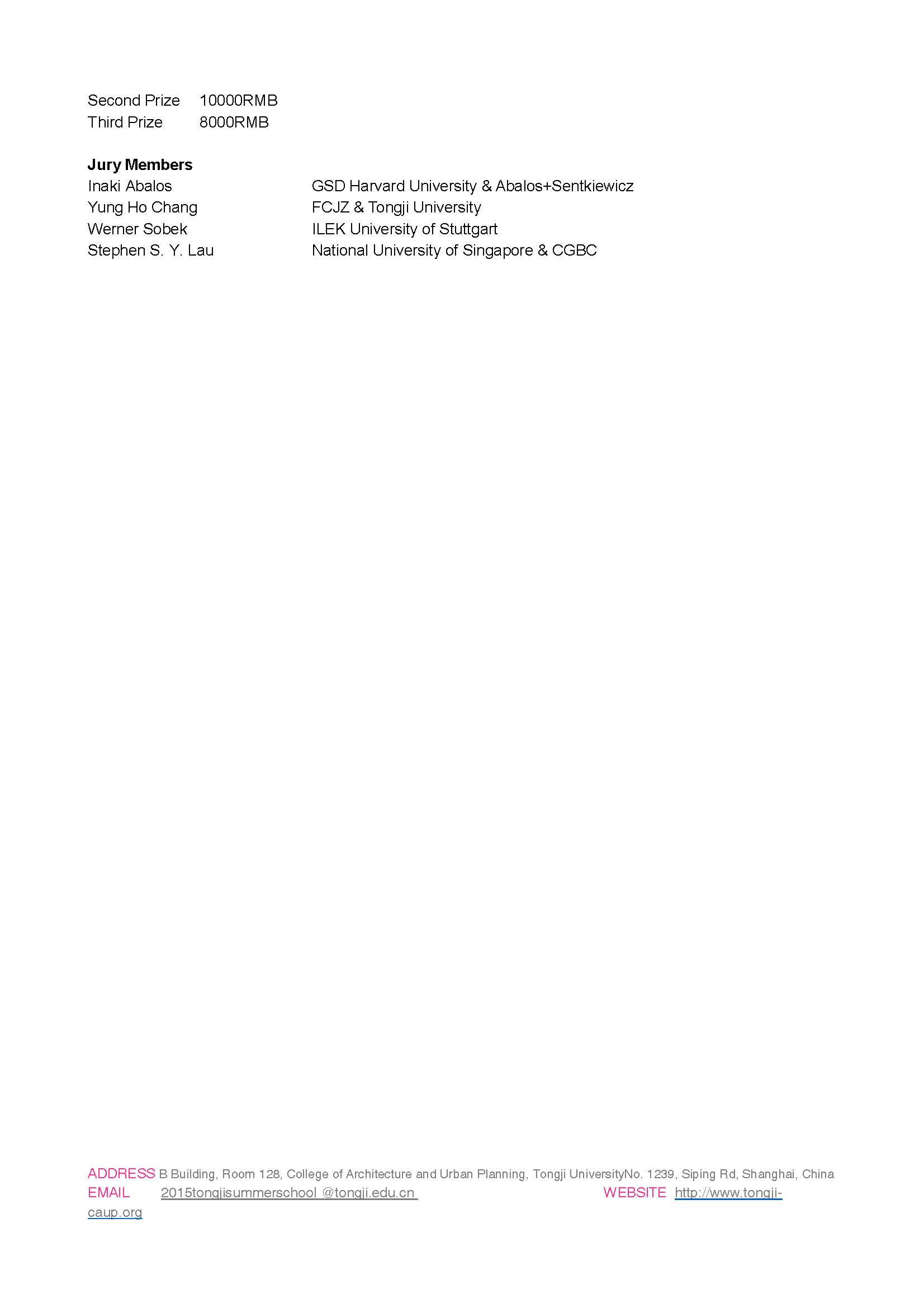
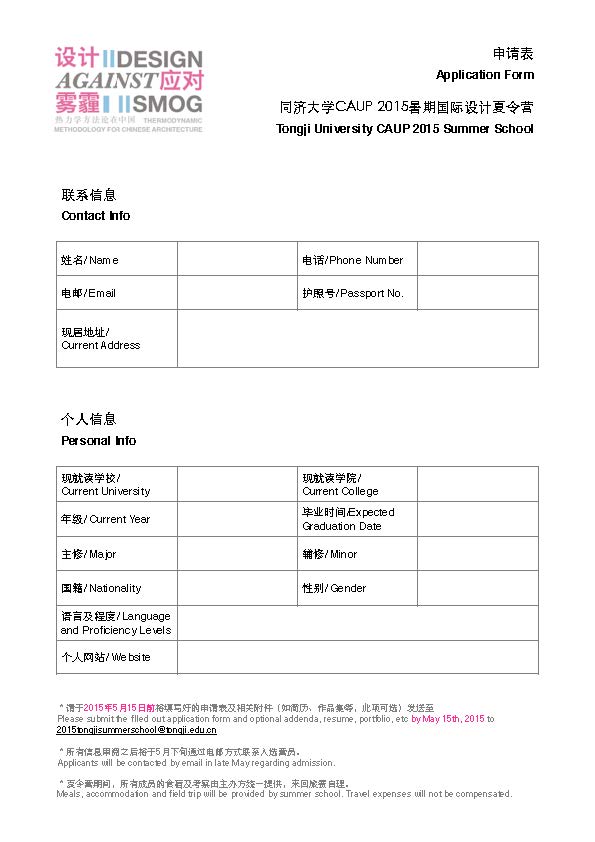
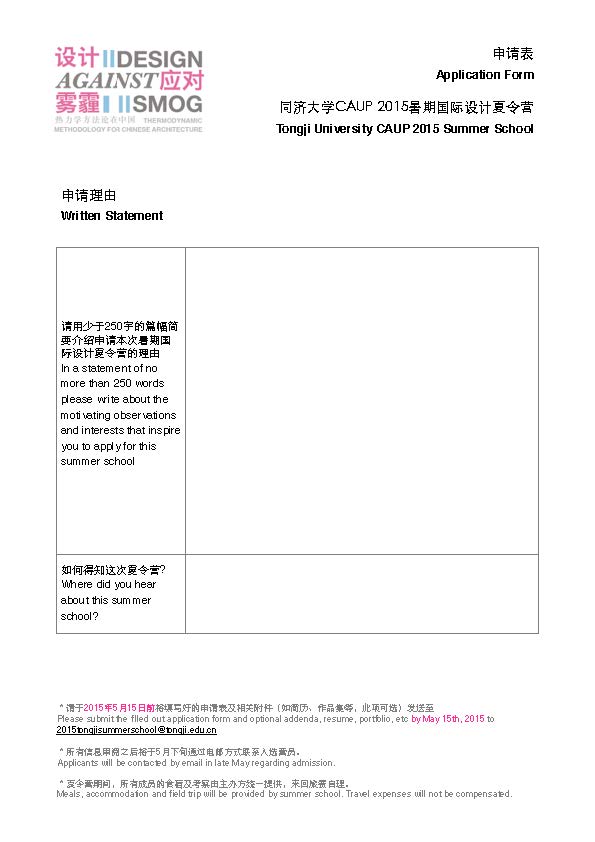
相关附件:
2015 Tongji Summer School information&Application Form






